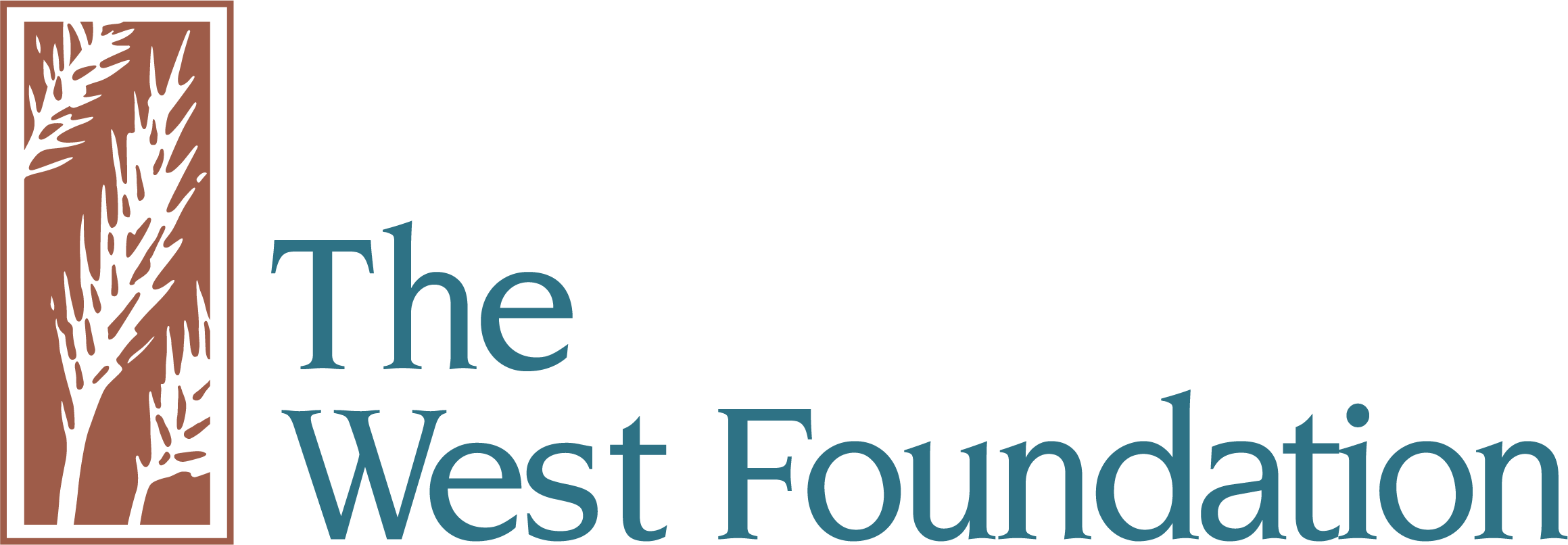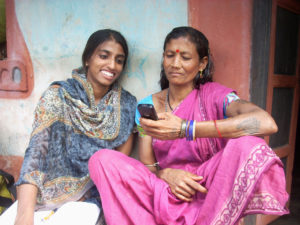Learn more about Hesperian Health Guides
1. Tell us about your mission.
Hesperian Health Guides addresses urgent, emerging, and primary health needs, structural inequalities, and their root causes together with the people most directly affected. Our mobile apps, digital, and print tools help individuals and communities around the world take action and work to eliminate the underlying causes of poor health.
2. How is The West Foundation supporting your mission?
The West Foundation’s grant support to Hesperian enables us to create, user-test, release, and distribute materials and health guides across issue areas of critical importance to physical and psychological well-being, including environmental health, workers’ health and safety, reproductive health, living with chronic illness and disabilities, children’s and primary health care. The Foundation also serves an invaluable role as a thought partner and connector.
3. Considering your impactful work to eliminate poverty, how is The West Foundation’s philanthropic support providing you with sustainability and mobility?
The West Foundation’s philanthropic support funds comprehensive, multilingual resources, such as Hesperian’s signature project, NEW Where There Is No Doctor. Institutional and individual donors often focus on a single disease, health issue, or country. The Foundation’s flexibility makes it possible for us to respond quickly to developments impacting people’s health and well-being, while maintaining momentum with our partners on multiple projects simultaneously.
4. How are you realizing your potential?
Hesperian’s 300 health resources are available in over 85 languages. Our materials are used by millions of people annually in 221 countries and territories.
Hesperian collaborates with thousands of community health workers, peer promoters, medical professionals, movement leaders, and organizers worldwide. We partner with respect for the knowledge, skills, priorities, opportunities, and constraints that individuals and organizations possess. Together, we develop, publish, and share vital, user-centered information that is culturally appropriate and action-oriented.
Our approach to ensuring that all people have accessible, up-to-date health information is distinguished by:
- Clear language and illustrations in our world-renowned style with translations by native speakers skilled in presenting health information in easily understood terms.
- Harm reduction alternatives when the best response is just not possible.
- Global partner networks at the international, regional, national, and community levels nurtured with care over more than 40 years that facilitate rapid delivery of our life-saving information to the most vulnerable communities, hard to reach populations, and geographically remote regions.
- A trusted global brand to counter the infodemic of health rumors, hoaxes, fake treatments, and “cures” spread online and person-to-person in the absence of reliable, relatable health information.
5. What’s one important thing you want others to know about your organization?
Hesperian produces and shares easy-to-understand health information for people worldwide.
Hesperian strives for a world in which people and communities are equipped to achieve health for all. Our mission is to provide information and educational tools that help all people take greater control over their health and work to eliminate the underlying causes of poor health.
Hesperian’s long-term goal is Health for All, a systemic change that eliminates health disparities based on gender, sexual identity, ancestry, religion, disability, age, or citizenship. We will know that our vision is realized when individual and collective agency enables all people worldwide to address urgent, emerging, and primary health needs and their root causes effectively without fear of violence or other reprisal.
A woman-led organization since 1996, nearly all Hesperian’s small, dedicated staff have advanced technical skills, as well as organizing or advocacy experience related to one or more of our issues. Among others, we identify as women (82%), people of color (29%), and immigrants, members of immigrant households, or first-generation Americans (41%). Our staff includes bicultural/bilingual speakers of Chinese, French, and Spanish. Most of the native English speakers are proficient in one or more additional languages.
6. How can people reading this help you?
For over 45 years, Hesperian has worked a movement builder for social justice, to create a world where everyone has access to knowledge for action and can take action for health.
Here are three powerful ways to join us:
Use Hesperian’s mobile apps, digital, and print resources. Share them widely with your personal and professional networks. Many are free.
Partner with us through your organization or as an individual to translate, update, or test materials to ensure they are accurate and easy-to-use.
Tell the world your story and amplify our call for Health for All Now!
7. What are your deepest needs as an organization?
People’s ongoing health needs do not disappear when other health problems, like the COVID-19 pandemic, arise. They become more challenging and more essential to resolve than ever. COVID-19 made Hesperian adjust our operations, develop a new area of work to address the virus, and recalibrate our work plan.
Hesperian needs flexible short-term and multiyear funding to address three priorities, identified with our global partners, to mitigate the devastating impacts of the COVID-19 pandemic on people living in the hardest hit communities:
- Developing and releasing free NEW Where There Is No Doctor mental health modules in digital and PDF formats in multiple languages, including mental health. Hesperian is creating four chapters on mental health that will cover: 1) mental health promotion; 2) substance abuse; 3) trauma; and 4) perinatal depression.
- Expanding, translating, and promoting our Workers’ Guide to Health and Safety to ensure that labor leaders, organizers, peer promoters, and clinicians are equipped to effectively advocate, counsel or treat women in low-wage industries who are experiencing a “double pandemic.” Sharan Burrow, General Secretary, International Trade Union Confederation praised the first edition as “an incredibly practical, respectful resource…Full of accurate technical information and motivational stories.” This project takes a major step toward ensuring that low-wage workers, especially women, have the information they need to take action to protect their health— and can do so without fear of stigma, marginalization, or danger of violent reprisal.
- Continuing to get reliable COVID-19 information to countries and areas in the United States where underfunded healthcare infrastructure makes adults and children especially vulnerable to infection, severe illness, and co-morbidities that increase the likelihood of long-term health problems or death.
Hesperian released a free, downloadable COVID-19 Fact Sheet in early March. After enlisting over 40 partners, it is now available in 31 languages and formatted for accessibility to people with reading impairments. People in 163 countries and all 50 US states engage with it directly online. International organizations, including Communicating with Disaster-Affected Communities (CDAC) Network, Clean Clothes Campaign, and World Association of Medical Editors, link to it on their websites. So do public agencies, libraries, health associations, service providers, advocacy organizations, and media outlets across the US. In the past two months, more than 45,000 people have viewed this information on Hesperian’s website.
In May and June, we released additional resources requested by our partners with translations completed or underway in 20 languages:
- Is your sickness COVID-19?
- Staying well in the time of coronavirus
- Caring for a sick person at home
- Breathing
- Health protection and security for protest marches
- Making masks, face shields, handwash stations, hand sanitizer, and soap
- Managing stress and anger
We regularly hear that these resources are transformational from people as geographically dispersed and culturally different as a doctor treating her patients in a family clinic in Zimbabwe to an advocate for indigenous migrant workers and their relatives in an isolated Mexican valley to the medical staff at a major public hospital in the US. Working with our translation partners, Hesperian will continue to update them, adding new languages, and ensuring that the content is consistent with the most current information and medical guidance.

